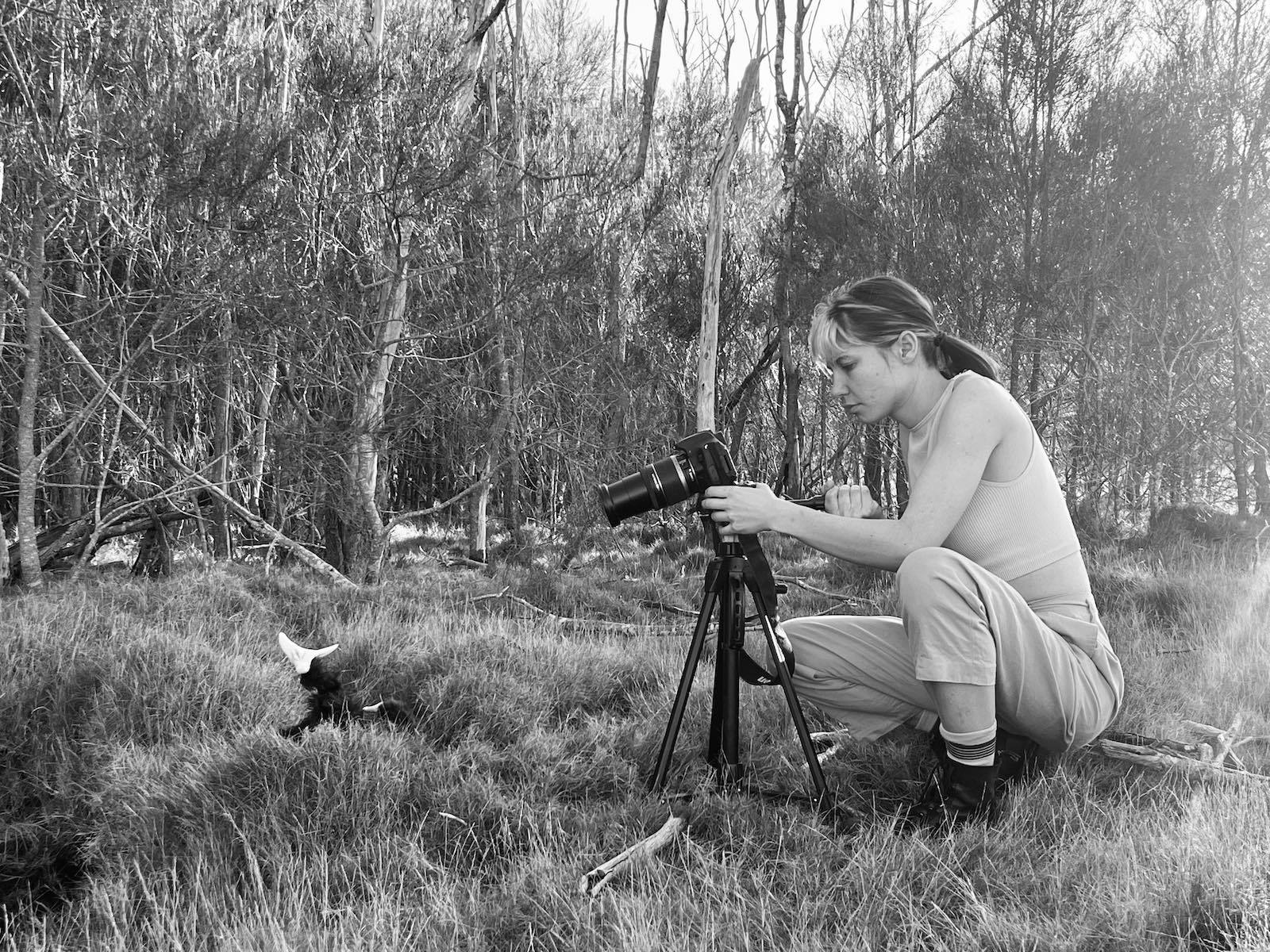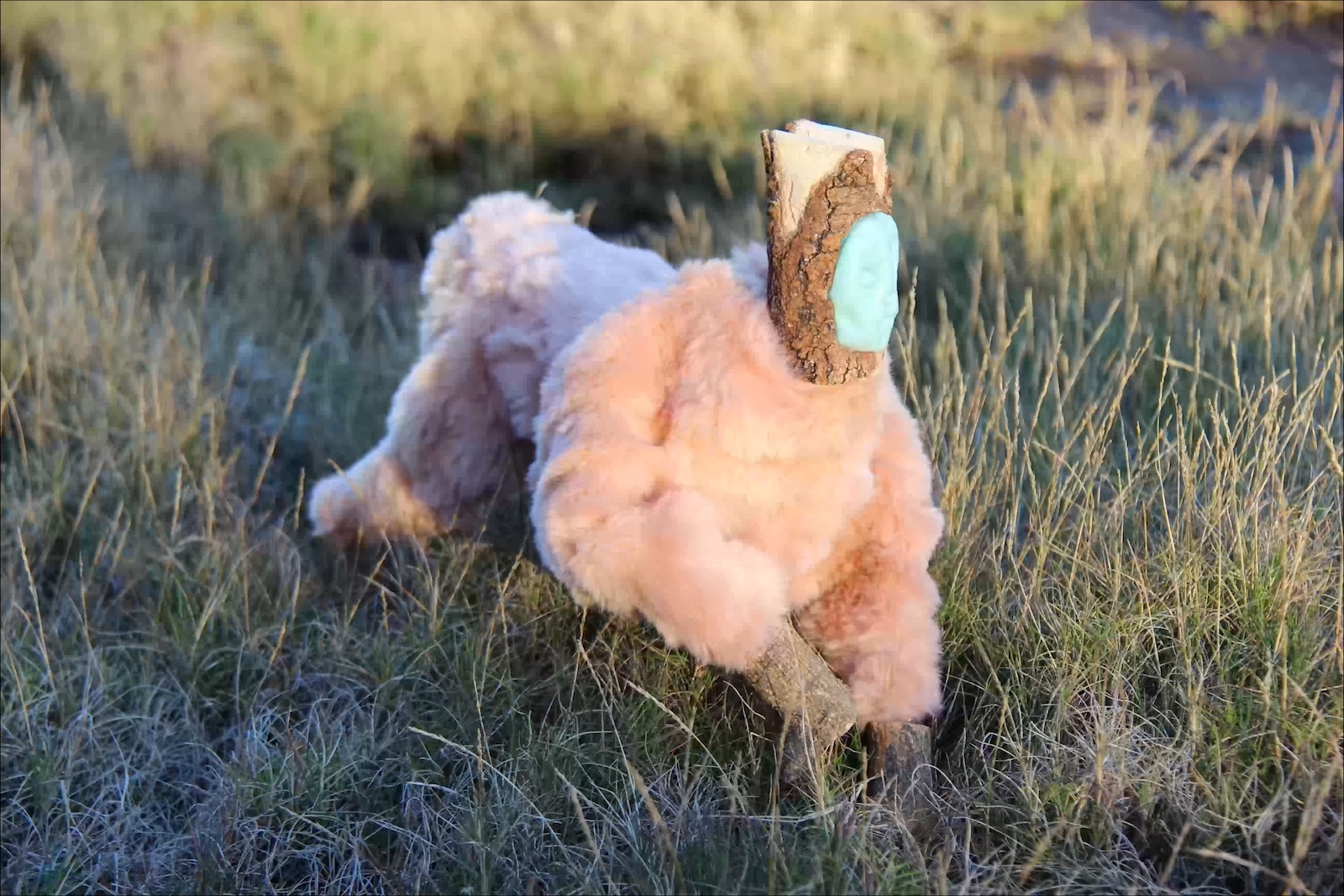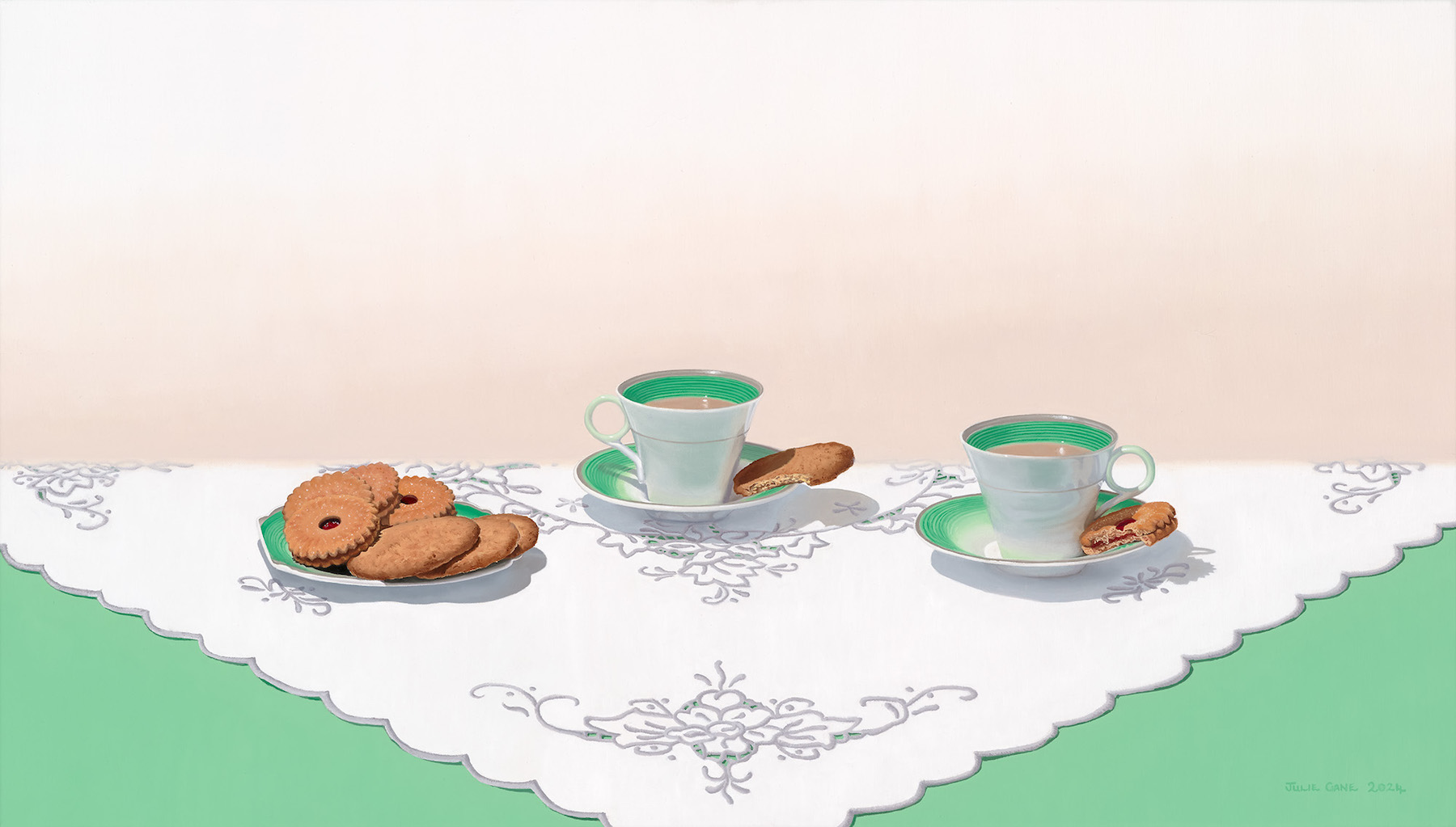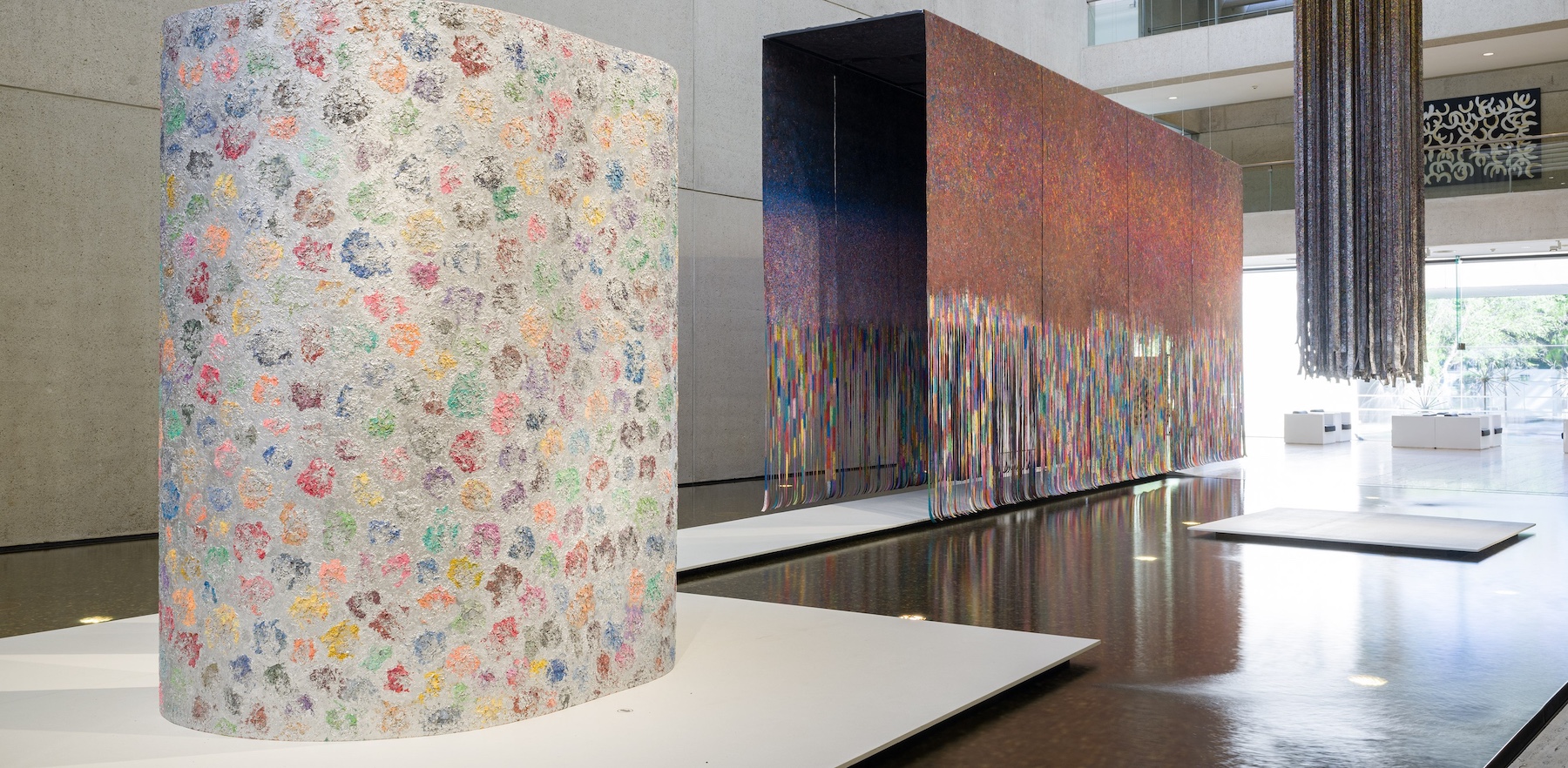House Conspiracy remains a gesture of the arts’ indomitability in the face of gentrification. As the last Queenslander for a few blocks in any direction, the West End artist run initiative is constricted by surrounding development, yet its continuation as an art space is emblematic of Brisbane resistance. The house sits unevenly atop a dozen concrete posts and a narrow alley along its side leads to a verdoyant backyard garden. Within this space and over the last seven years, the house’s longevity and the ethos of its programming has consistently created opportunities for emerging artists to experiment with and explore their practice.
The recent House Conspiracy exhibition, Imp Traveller in the Everything Empire, stood out from many emerging artist exhibitions as a rigorously crafted stop motion video work and a promising collaboration between artist Yulia Skorina and visiting researcher Sara Guilbert (FR).
Yulia Skorina combines an interdisciplinary practice and affinity with small objects to create worlds that breathe through stop motion and visual storytelling. Yulia has presented work at artisan, Electrolab, Sure Studios, QCA, and many of Brisbane’s in-between spaces. Her artistic voice is readily apparent in her diverse practice.
Sara Guilbert is conducting her/their Masters’ fieldwork in Brisbane: looking at how architecture and town planning play a role in the social dynamics of the city, particularly the negotiation of community space (physical and dematerialised) in a very neo-liberal landscape. Her/Their research is mainly approached through an anthropological and cultural geographic lens. This is augmented with a tactile mastery of traditional shadow puppetry and a genuine sentiment of creative diplomacy, which evokes a collaborative spirit.
The exhibition was concerned with interaction at every level: the video work was displayed in a darkened room with a few pillows; a humble speaker reproduced David Harris’ narration and Yulia’s affectionately sculpted soundtrack. The video was further framed by artistic contributions from fellow artists, Isabelle Cowan and Liav Shalev, and the opening event was presented with afternoon tea and what was described as an open conversation about the future.”
The diegetic aspects of the work were forged during the peak of the pandemic and galvanised through this first collaboration between the two creatives. Sara brings a rich history of puppet performance to Yulia’s work and draws on some of the aspects of her research on puppetry as a political art. The film combines traditional animation aesthetics that are reminiscent of the early silhouette animation of Lotte Reiniger and the craftsmanship of Czech director Jiří Trnka.
Imp Traveller in the Everything Empire‘s characters are monstrous and exist in a vaguely post apocalyptic, two-dimensional space where they struggle to make plants grow. The puppetry has a charm that is reflective of Yulia’s yearning for people to see each other for what they are and presents a sort of reconciliatory spirit of acceptance that is intrinsic to the work. One day an Imp traveller arrives and asks for the monsters’ help to cross a chasm. The chasm is a metaphorical representation of their interpersonal disconnection and empathetic failures.
When the Imp and the monsters’ attempt to cross the barrier, the work speaks to shifting social dynamics in urban spaces and references the prisoners in Plato’s Allegory of the Cave. In this moment, the animation breaks dimensionality into a world of intricate and realistic detail, transforming from flat silhouettes to full puppet animation. In the final scene, the monstrous characters appreciate their own inaccurate perceptions to see the chasm for what it really is: an obstacle that they can circumnavigate through understanding.
The break in continuity that this film articulates hints at some of the larger concepts of utopia: not as an idyllic state but something within our means if we could start to change how we think about each other as humans. In the context of the exhibition, the work presents ritualistic and empathetic values that are rare in screen-based art. The exhibition opening was not presented as a party but as an alternative space for interaction via the artists’ deliberate decision to not serve alcohol.
In light of ongoing institutional failures to address the impacts of climate change and an overwhelming sense of anxiety around the future of Brisbane, this work demonstrates how a short film can be extrapolated into something that is more influential to a community than a time locked sequence of frames. Moreover, in this work Yulia Skorina and Sara Guilbert combine the merits of a rigorously crafted film with a particularly collective approach that is exemplary of the essence of House Conspiracy.
@unregisteredmasterbuilder Joseph’s creative practice rests at the axis between textiles, motion and sound. Joseph has contributed to projects across Europe, North-America, the Middle-East and Australia; most recently deploying projects with Atelier Sisu (AU) and Barcelona-based Onion Labs (ES) as an animator and sound artist. Currently residing in Meanjin, Joseph is a director of KEPK and has focused on curating long-form durational sound projects and experimental showcases. Joseph is currently undertaking a Masters by Research exploring the interface between Romantic-era technology and the absence of sound in modern-carpet making.







